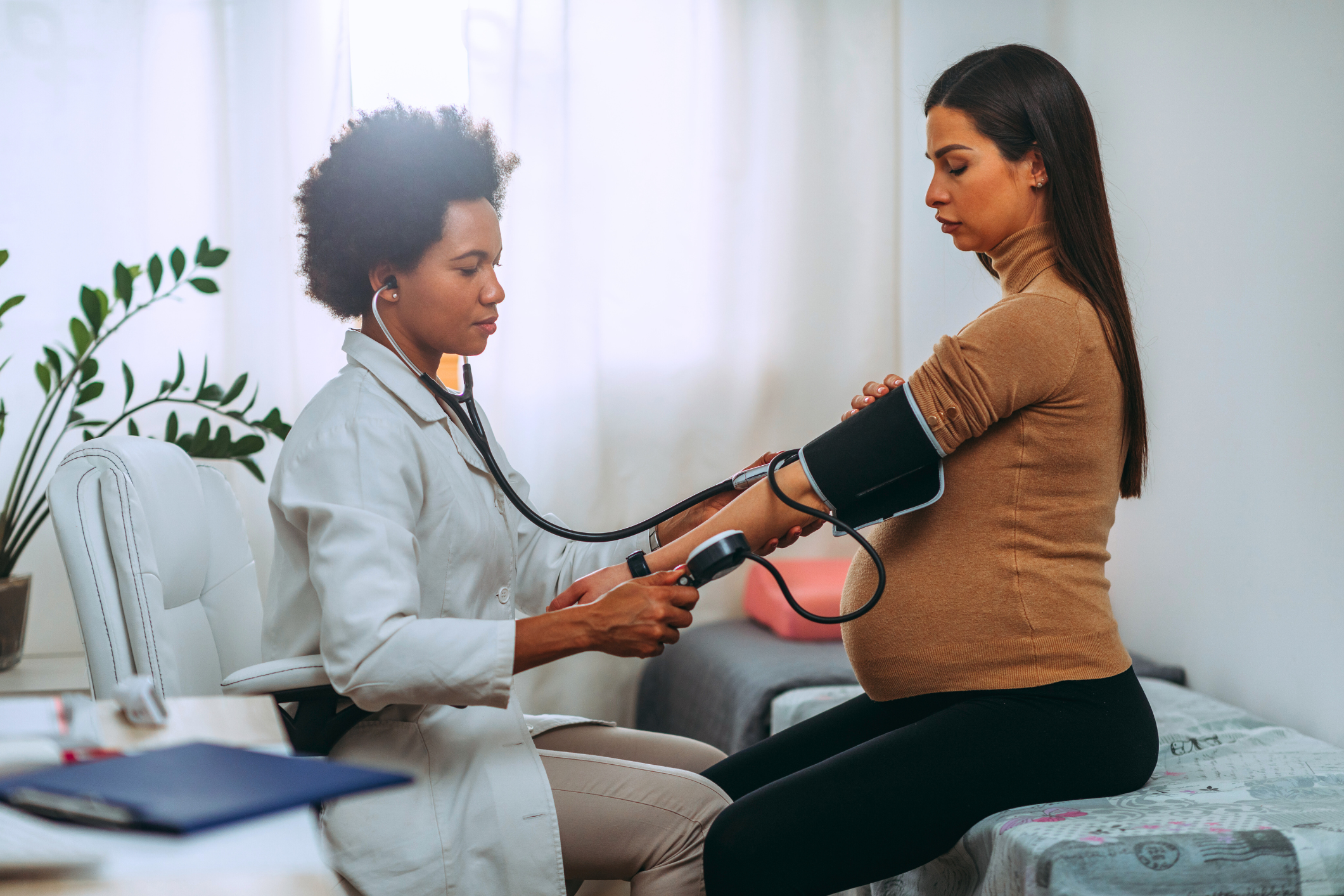By Taylor Hughes
Maternal mortality is a crucial indicator for assessing the quality of healthcare access and delivery for pregnant and postpartum women, and it is receiving much-needed attention in New Jersey. The World Health Organization defines maternal mortality as “the death of a woman while pregnant or within 42 days of termination of pregnancy, irrespective of the duration and site of the pregnancy, from any cause related to or aggravated by the pregnancy or its management, but not from accidental or incidental causes.”
In 2020, the maternal mortality rate in the United States was 21.2 deaths per 100,000 live births, significantly higher than the average of comparable high-income countries according to the Organisation for Economic Co-operation and Development (OECD), which was 10.9 per 100,000. Meanwhile, New Jersey’s rate exceeded the national average, with 28 maternal deaths per 100,000 live births. Racial disparities exacerbate this issue. A report by the New Jersey Maternal Mortality Review Committee revealed that Black non-Hispanic women in New Jersey face a maternal mortality rate nearly seven times higher than that of their White counterparts.
Several factors contribute to these increased mortality rates, including a shortage of healthcare providers and limited access to comprehensive healthcare coverage, particularly maternity and postpartum care. The rise in chronic conditions related to pregnancy complications is also a factor. These challenges, combined with low-quality care, discrimination, and clinician bias, disproportionately affect women of color.
The New Jersey state government has taken significant steps to address this issue. In 2019, New Jersey First Lady Tammy Murphy launched Nurture NJ, a statewide initiative to make New Jersey “the safest and most equitable state in the nation to deliver and raise a baby.” Following extensive stakeholder meetings, the Nurture NJ Maternal and Infant Health Strategic Plan was launched in 2021 to provide a more informed roadmap for achieving its goals. Since then, Nurture NJ and the New Jersey Department of Human Services have expanded NJ FamilyCare (the state’s Medicaid program) to cover care up to 365 days postpartum and to include community doula services. Reimbursement rates for maternal healthcare providers have also been increased.
Governor Murphy has signed several pieces of legislation related to maternal and infant health, including Bill S3864 in 2023, which established the New Jersey Maternal and Infant Health Innovation Authority. This authority is now the primary body “responsible for coordinating all efforts and strategies to reduce maternal mortality, morbidity, and racial and ethnic disparities in the State.” The bill allocated $23.2 million to support the new authority. The New Jersey Economic Development Authority (NJEDA) is collaborating with the authority to develop the New Jersey Maternal and Infant Health Innovation Center in Trenton. This center will serve as a hub for research and analysis, community partnerships, and coordination with national, state, and local agencies to promote equitable maternal and infant health outcomes statewide. It will also focus on perinatal workforce education and training and provide maternal and infant healthcare and social services.
These ongoing efforts are hopeful steps toward reducing maternal mortality rates and addressing racial disparities in New Jersey’s maternal healthcare system.
Taylor Hughes is a graduate student pursuing a Master of Public Policy degree at the Edward J. Bloustein School of Planning and Public Policy. She serves as a research assistant with the New Jersey State Policy Lab.

